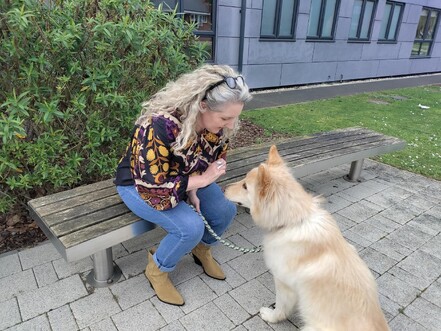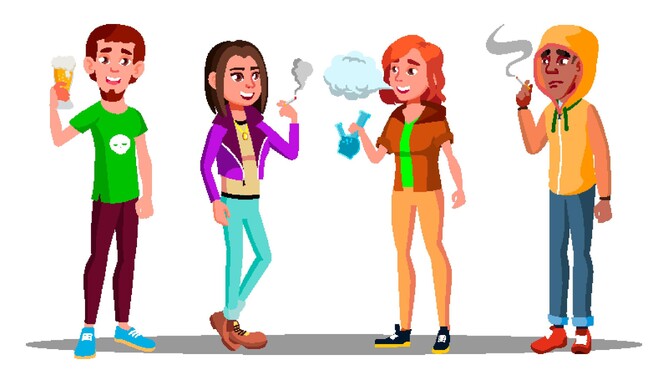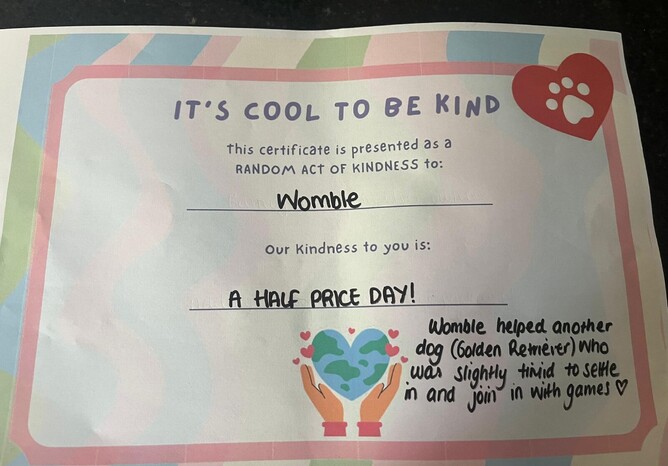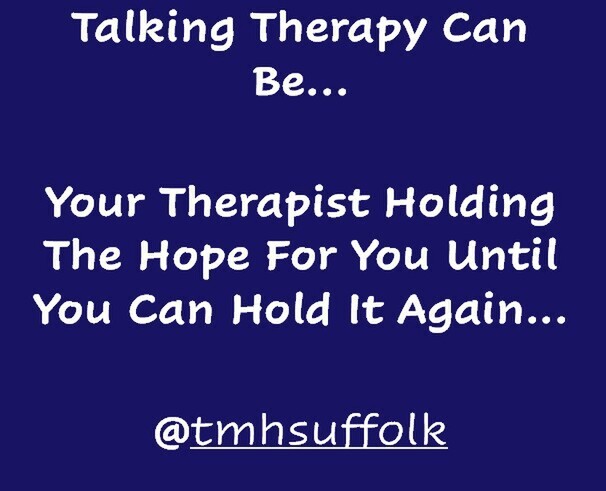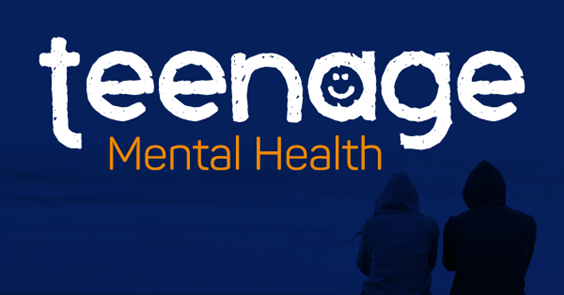Womble the Therapy Dog here, inviting you to check out my latest blog posts and more, where I tackle tough but important topics like: what to do when you suspect your child is using drugs or alcohol.
Read Womble's Advice on Worried About Drugs and Alcohol HERE
In this post, I'll provide tips and insights on how to approach this sensitive issue, including understanding in brief why kids might turn to substances and how to support them through it.
Remember, you're not alone in this journey. Let's navigate these challenges together with a wagging tail and a caring heart 🐾
Did you see our previous Newsletter?
Sharing advice and updates on things such as:
Mental Health Awareness Week
Book Recommendations
Info on Exam Stressors & Pressures
Where to Look for Activity Ideas in Suffolk
Womble Pupdate!
Local Events and other services resources
Interesting Fact
Bookmarks information for mental health support · Joining the TMH Team
With other advice or tips.
Have a nose HERE
“My teen son and daughter just won’t listen to me, it’s like dealing with the toddler 'no' phase all over again! I’m at my wits end! Why won’t they listen or do anything I ask?!”
Hello there, concerned parent! Womble the Therapy Dog here, ready to lend a paw and some friendly advice.
Teenagers refusing to listen can be incredibly frustrating, and I understand it feels like you're dealing with a toddler all over again. Let's sniff out the reasons behind these behaviours and explore some strategies to help you navigate through it.
Why Teenagers Say "No" or Appear to Not Listen.
Teenagers often say "no" in various forms for a variety of reasons, many of which are tied to their development and desire for independence:
1. Seeking Independence: Just like a puppy wants to explore the world beyond its leash, teenagers are striving for independence and autonomy. Saying "no" is a way for them to assert their newfound sense of self.
2. Testing Boundaries: Similar to how a dog tests the limits of its training, teenagers push boundaries to see how much freedom they have. This is a natural part of growing up and understanding the world around them.
3. Emotional Turbulence: Adolescence is a time of significant emotional and hormonal changes. This can lead to mood swings and oppositional behaviours as they navigate their feelings.
4. Desire for Control: Teenagers resist when they feel their lives are being overly managed by parents and carers. It may not always be rational how or with what they’re resisting against, but with a brain developing exponentially in adolescence we need to forgive these occasional blips, because asking can be pretty tough to do and sound like a bark.
Strategies to Handle the "No" Phase
1. Stay Calm and Consistent: Reacting with anger or frustration can escalate the situation. Stay calm, maintain consistent rules, and show that you’re a steady presence in their life.
2. Pick Your Battles: Not every "no" needs to be a confrontation. Focus on the important issues (like safety and health) and let some smaller things slide. This shows that you respect their growing autonomy.
3. Open Communication: Encourage open and honest communication. Let them know their opinions are valued, and try to understand the reasons behind their refusal.
4. Offer Choices: Giving them choices can satisfy their need for control. For instance, "Would you prefer to do your homework before or after dinner?" gives them a sense of agency while still getting the job done.
5. Positive Reinforcement: Reinforce positive behaviours with praise and rewards. Just like a dog responds well to treats for good behaviours, teenagers respond positively to recognition and rewards.
6. Model Respectful Behaviours: Show respect in your interactions, even when they’re being difficult. Modelling respectful behaviour sets a powerful example for them to follow.
Remember, this phase is a normal part of your teenager’s development. It’s challenging, but with patience, understanding, and a bit of strategic thinking, you can guide them through it. You're not alone in this journey—reach out to friends, family, or professionals for support when needed.
If you have lingering concerns or worries, consulting with a child professional can be very helpful. At TMH, we work with parents too, because supporting the whole family is often the best approach. Please feel free to reach out to us to see how we can assist you and your situation.
Sincerely,
Womble the Therapy Dog 🐾
Meet The Team
Introducing with a wag a woof, Dylan!
Before joining the TMH team, Dylan’s journey with TMH began in a unique and personal way. He was actually once a patient here at TMH in it's beginnings!
Dylan told me it was his own positive experience and the support he received that inspired him to help others in similar situations. When the opportunity arose to work with TMH and contribute to its mission of supporting more people, Dylan didn’t hesitate to jump on board. With a strong desire to help others, work experience and his personal connection to our services, it was ideal for all involved.
Dylan has now been a member of the team for almost 32 dog years! (almost four years if you're a human reader)
Dylan is also a Registered Foster Carer with Suffolk Foster and Adoption services, demonstrating his dedication to supporting young people in various aspects of life. Currently, Dylan is pursuing a masters degree in child and adolescent counselling, following completion of his Batchelors degree in Therapeutic Communications and Therapeutic Organisations.
At TMH, Dylan supports in various roles such as HR, delivering workshops, patient assessments, parent support or enquiries. But as a Director of Client Services, Dylan is committed to spreading the word about TMH and building our services and reputation. Engaging in networking, media and community events, striving to connect services and users.
But enough about him!
I'VE BEEN SUCH A GOOD BOY!
Look! See! ...
Random Act Of Kindness
Have you got a 'Random Act of Kindness' story?
Did you witness something lovely from one being to another?
Or did someone show you a Random Act Of Kindness?
Did a charitable organisation help you when you least expected it?
I would love to hear your story so I could share it on my next newsletter! Because it's nice to share the Joy.
Email your story to womble@teenagementalhealth.co.uk
We can keep it anonymous if you'd prefer 🐾
Interesting Fact
Womble, can talking therapies actually help me with my ADHD?
Yes, talking therapies, such as psychotherapy and cognitive behavioural therapy (CBT), can indeed be beneficial for individuals with ADHD (Attention Deficit Hyperactivity Disorder). While medication is often a first thought of treatment for ADHD, talking therapies can provide additional support and strategies for managing symptoms medication might not. (It also works for people without ADHD, paws down someone told me that!)
Talking Therapies, can help individuals with ADHD or those with similar presentations (with or without a diagnosis) to explore the emotional and psychological aspects of their condition or symptoms related or not, such as struggles with self-esteem, relationships, and life goals. It can also provide a supportive environment for processing the challenges associated with ADHD or similar and developing strategies for success.
Overall, talking therapies can be valuable components of a comprehensive treatment plan for individuals with ADHD, alongside medication and other interventions. 🐾
Did You Know?
We have therapists also skilled in CBT? Yep, it’s true, there’s a multi-talented team at TMH.
We also have a Play Therapist who’s getting on great with our much younger patients at TMH! And he doesn’t just throw a ball and play fetch! Woof!
Find out more via Meet The Team
WE DO FREE INITIAL APPOINTMENTS
Yes, it's true, we always provide a first appointment for free for those considering therapy.
Visit the centre and meet a clinician in person before making the decision to start therapy. If it is not the right time, or not right for you or your child, the door remains open and you don't get financially penalised.
Sniffing Out What Might Be Behind Parental Anxieties
It's Okay to Parent!
Sharing some tail-wagging wisdom with all you wonderful parents out there feeling any doubt. Today, I want to remind you that it’s absolutely okay to parent! I know, being a parent can sometimes feel like you’re walking a tightrope, balancing between wanting to be liked and needing to set boundaries.
But guess what? Setting rules and boundaries isn’t just okay—it’s essential for your child’s well-being. Let's dive into why it’s important to embrace your role as a parent, even when it’s challenging. Read my Womble Wisdom in full, here 🐾
Launch of New Physical Activity and Movement Strategy for Suffolk
"Move More to Feel Better"
Guess what? There's something super exciting happening in Suffolk! It's called "Move More to Feel Better," and it's all about getting up, moving around, and feeling awesome! This cool strategy was put together by some really smart folks who know all about physical activity and keeping healthy.
They've come up with eight important things to help make Suffolk a happier and healthier place for everyone. You can even check out the plan on the Active Suffolk website!
The strategy aims to ensure that everyone in Suffolk has access to physical activity opportunities that suit their needs. It’s designed to be accessible, with both a booklet and an easy-read version available.
Join Suffolk in moving more to feel better! 🐾
Active Suffolk Update: https://www.activesuffolk.org/news/2024/05/launch-of-new-physical-activity-and-movement-strategy-for-suffolk-move-more-to-feel-better
Booklet Version: https://activesuffolk.org/move-more-to-feel-better.pdf
Easy Read Version: https://activesuffolk.org/move-more-to-feel-better-easy-read-version.pdf)
Teenage Mental Health is a team of highly qualified therapists who have come together to provide exceptional services to those stuck on waiting lists fed up with not meeting a threshold for care.
We work on a not-for-profit basis so whilst we do have to charge for therapy (sadly no government body funds us) we do not make profits; our only priority is making sure that you and your child get the care that you need.
Visit the rest of the website or contact us here for more information.
